As we all know, creative inspiration sometimes requires a jump start, particularly when a deadline looms. In a previous post, I described how the SCAMPER technique acts as a creative trigger for ideas. SCAMPER, of course, is only one creative thinking tool in a treasure chest filled with idea-generating techniques. Another useful tool for creative inspiration is Attribute Listing.
Back in the 1930s, Attribute Listing was devised to develop new and/or improved products from existing or known products by breaking them down into their characteristic parts, or attributes, listing individual elements that fit these attributes, and then combining selected elements from some of the attributes in new ways. In the industrial world, for example, a manufacturer might decide to develop a new pen that stands out from its competitors. Some of the attributes of a typical pen might be said to be style, color, ink delivery method, comfort, and type of ink. By identifying specific styles, colors, ink delivery methods, elements of comfort, and types of ink, and then combining the best ideas from each of these attributes, it is possible to develop a new and improved pen. The same is true when a fashion designer develops a new bag, whose attributes might be said to be material (fabric, leather, synthetic), hardware (buckle, button, snap, handle), intended use (book bag, evening bag, laptop bag), and style (formal, sporty, classic, playful). By listing specific possibilities for each attribute of a bag, and then selecting and combining the most appealing ideas, a designer produces a new bag.
Attribute Listing is chiefly a creative thinking tool that is designed to be used in a limited way—to improve upon a pre-existing idea or product. However, the possibilities for improvement of an idea or product are endless. To apply the Attribute Listing technique, follow this five-step plan:
1. Identify your goal, i.e., what idea or product do you want to improve.
2. Identify 4 to 8 attributes, or characteristics, of this idea or product. There are no right or wrong answers here; you determine the attributes you want to analyze.
3. List as many specific ideas for each attribute as you can. Resist the urge to reject ideas; write them down without analyzing them.
4. Go back through your list of attributes, and circle the best ideas for each one. This is, of course, subjective.
5. Consider how you might combine the best ideas.Let’s take a look at how you can use Attribute Listing.
If I want to develop an Etsy “Treasury,†a showcase of Etsy products that I believe is special in some way, Attribute Listing provides me with an endless array of ideas. Typical attributes of a Treasury could include theme, style, audience, technique and material. By listing the first ideas that come to mind for each attribute, I will have the start of an Attribute List that I can use to develop a Treasury:
Theme: color, ecological, industrial, nature, floral, toys, songs, books, indoor, outdoor, tools
Style: modern, Western, vintage, Victorian, medieval, eclectic
Audience: adult, women, men, children, teen, baby
Technique: crochet, collage, beadweaving, felting, knitting, metalwork, glassblowing, painting, encaustic, woodworking, sewing, macrame, Scherenschnitte
Material: yarn, fabric, feathers, beads, buttons, paper, glass, wood, metal, plastic
For the purpose of this exercise, I will select the following elements from each Attribute to create a Treasury:
Theme: floral
Style: eclectic
Audience: women
Technique: showcase multiple techniques
Material: showcase multiple materials
Finally, below is a blog-style Treasury of BBEST artists’ floral creations I could develop from the attributes I have listed. Try this yourself the next time you want to create a special Treasury, or to improve upon an idea or product you already have. Creative thinking tools such as Attribute Listing or the previously-described SCAMPER are situation-driven techniques. In other words, much as you would use a hammer and not a block of wood to drive a nail into a board, ideally you can select the right creative thinking tool for the inspirational challenge you are facing.
 Midnight in the Garden Flower Focal,
Midnight in the Garden Flower Focal,
by ZudaGay
 large blues felted flower brooch,
large blues felted flower brooch,
by maddyandme
 Native American Beaded Bracelet
Native American Beaded Bracelet
Prairie Rose Cuff in Pink, by jstinson
 Red flower – encaustic,
Red flower – encaustic,
by onawhimsey
 Posies – Original Mixed Media,
Posies – Original Mixed Media,
by sixsisters
 Turquoise Flower Martini Glasses,
Turquoise Flower Martini Glasses,
by GlitznGlass
 Korean Flower Scherenschnitte,
Korean Flower Scherenschnitte,
by OneDogTalking
 Fun Ivory Wool Scarflet,
Fun Ivory Wool Scarflet,
by CBBasement
 Orange Magnetic Needle Nabber Flower,
Orange Magnetic Needle Nabber Flower,
by birose
© 2009 Judy Nolan. All rights reserved. Please note that the images in this post are owned by the artists and may not be used without permission. Simultaneously published at http://boomersandbeyond.blogspot.com.



